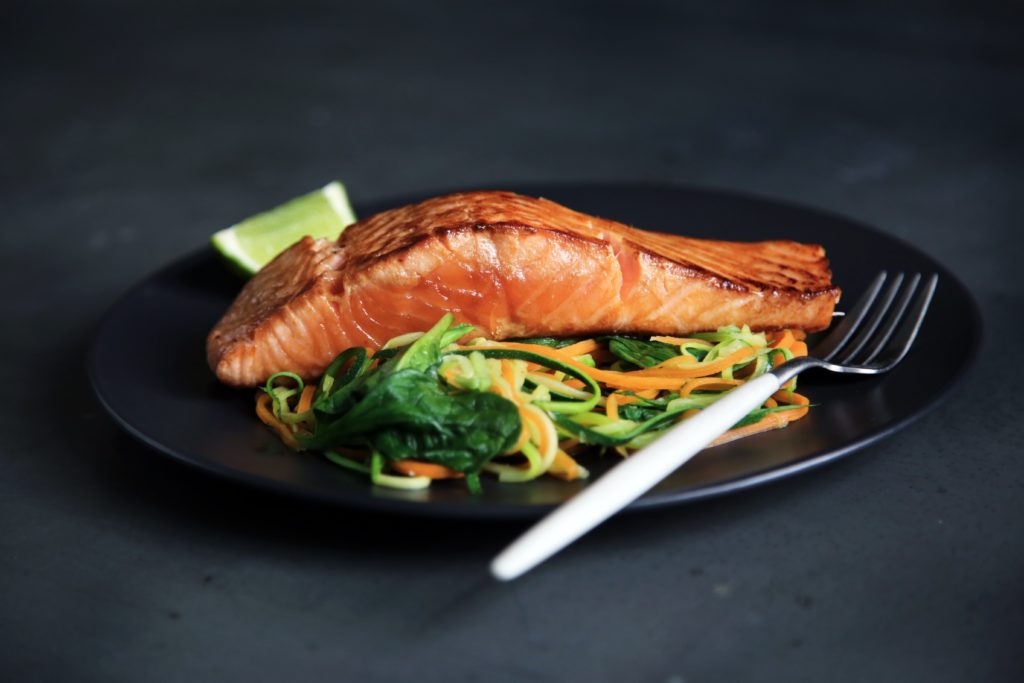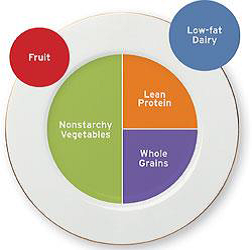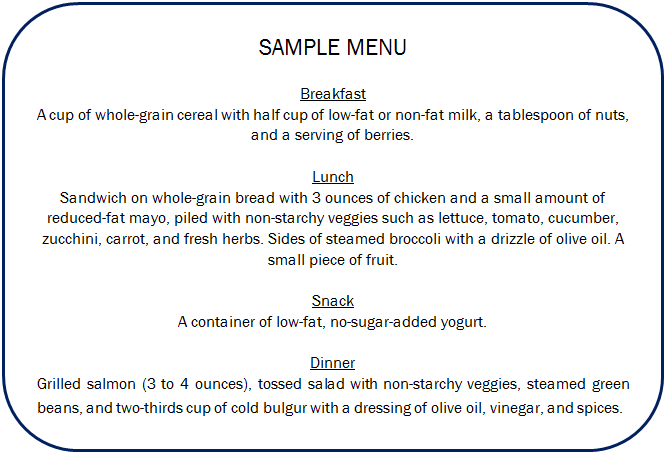There is no one-size-fits-all approach to eating healthily but it is important to have a regular meal pattern and make healthy food choices. The traditional approach to diabetes focuses on limiting refined sugars and foods that release sugars during digestion, including starches, breads and fruits. Even with carbohydrates reduced, the diet may contain an unhealthy amount of fat and protein. Therefore, diabetes experts have taken care to limit fats especially saturated fats that can raise cholesterol. The new approach focuses more attention on fat and encourages avoiding trans fats and limiting saturated fats.

Heart Healthy Diet for Diabetic Patients
What and how should we eat to keep our heart and blood sugar healthy? Read the tips from a dietitian below, on how to plan your meal and know which food to eat (and to avoid).
Recommended foods
Make your calories count with these nutritious foods:
- Healthy carbohydrates. During digestion, sugars (simple carbohydrates) and starches (Complex carbohydrates) break down into blood glucose. Focus on whole grains, legumes (e.g. beans, peas and lentils), fruits, and vegetables.
- Fiber-rich foods. Dietary fiber includes all parts of plant foods that your body can’t digest or absorb. Foods high in fiber include vegetables, fruits, legumes (e.g. beans, peas and lentils), whole-wheat flour and wheat bran.
- Heart-healthy fish. Eat heart-healthy fish at least twice a week. Fish can be a good alternative to high fat meats. For example, cod, tuna and halibut have less total fat, saturated fat and cholesterol than do meat and poultry. Fish such as salmon, mackerel, tuna and sardines are rich in omega-3 fatty acids, which promote heart health by lowering blood fats called triglycerides. Avoid fried fish and fish with high levels of mercury, such as tilefish, swordfish and king mackerel.

- ‘’Good” fats. Foods containing monounsaturated and polyunsaturated fats can help lower your cholesterol levels. These include avocados, almonds, pecans, walnuts, olives and canola, olive and peanut oils. But don’t overdo it, because all fats are high in calories.
Food to avoid for a heart-healthy diet
- Saturated fats. High-fat dairy products and animal proteins such as beef, hot-dogs, sausages and bacon contain saturated fats.
- Trans-fat. These types of fats are found in processed snacks, baked goods, shortening and stick margarines. Avoid these items.
- Cholesterol. Sources of cholesterol include high-fat dairy products and high-fat animal proteins, liver and other organ meats. Aim for no more than 200 mg of cholesterol a day.
- Sodium. Aim for less than 2,300 mg of sodium a day which is equivalent to a teaspoon of salt. However, if someone with hypertension should aim for less than 1,500 mg of sodium a day.
Picture your plate

A heart-healthy diet is really just good, healthy eating, and what we encourage the general population to eat anyway. Fruits and vegetables are staples of a heart-healthy diet as are mono-and polyunsaturated fats, carbs from whole grains, and protein in the form of lean meats, fish, beans, and tofu. If you’re struggling to get the hang of it, try visualizing your plate. Half of it should be filled with non-starchy veggies, such as broccoli and asparagus. A quarter should hold whole grains such as brown rice, barley, and quinoa. And the final quarter should contain your protein. Meat should be thought of as a side, not the main attraction of the meal.
A sample of heart-healthy menu

If you have diabetes, it is important that you partner with your doctor and dietitian to create an eating plan that works for you. Use healthy food, portion control and scheduling to manage blood glucose level.
About the author

Ms. Apple Lim is a dietitian and weight management consultant, who is passionately working with a team of healthcare professionals in weight management and chronic diseases management, at NuProfessional. She has delivered more than 100 health talks on diabetes management and has consulted more than 1000 diabetes patients over the past 4 years. She continues sharing her nutrition-related knowledge in Mediacorp 95.8 regularly to raise the awareness among public.